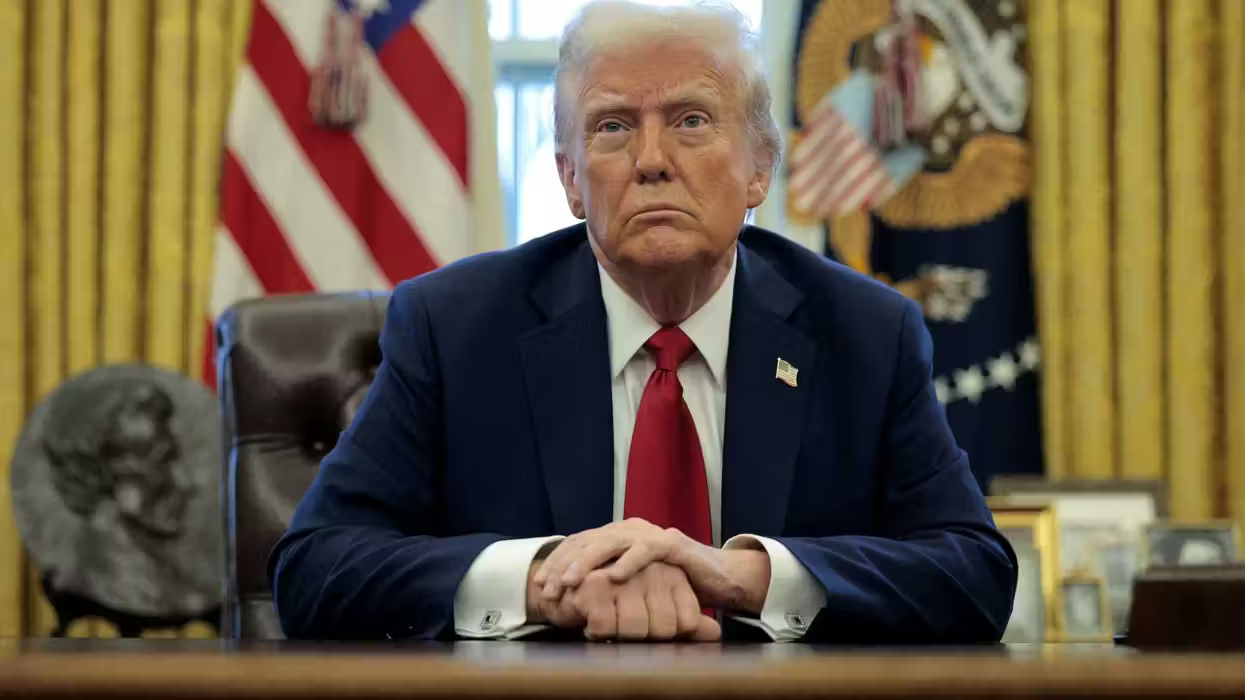
© 2025 Blaze Media LLC. All rights reserved.
The Real Risk Is Not the Camera': Drone Use in Non-Military Situations a Focus at UAV Conference
August 10, 2012
“Where there is an open mind, there will always be a frontier."

At the beginning of the week, the AUVSI (Association for Unmanned Vehicle Systems International) Unmanned Systems North America's conference kicked off. Among the expected discussion of moving drone technology forward for military use, how the technology has a place in peacetime was prevalent as well.
Speaking at the conference, the Federal Aviation Administration's Acting Administrator Michael Huerta said the administration is preparing to collect data that will allow it to develop regulations for the testing and licensing of drones for use by the military, private entities and individuals in the United States. Huerta also said the agency has been streamlining its certificate of authorization process.
“There’s a lot of work that needs to be done to move integration for all UAS forward, but I’m very, very optimistic that we will get there," Huerta said according to a statement.
Others shared Huerta's optimism for the acceptance of drone use outside of a warzone environment. Nevada’s Brig Gen. William Burks said his state is leading technological acceptance of the drones.
“What people don’t know they usually fear,” he said according to a statement. “The real risk is not the camera — it’s the irresponsible people using these systems in irresponsible ways.”
Burks said uses for drones that will help gain the public's trust include fire fighting, power line inspection and weather monitoring.
NPR featured some of the technology at the conference that could be what the public will get used to seeing in future years. One is the Quad VTOL (vertical takeoff and landing) by Procerus Technologies, which was bought by Lockheed Martin. This drone, NPR writes, has a 3-mile range, can easily focus on objects as it is flying and is designed to fit into a suitcase. Here's more from NPR:
Ease of use is key if manufacturers are going to start selling these things here at home. Local police and other first responders may not be willing to spend hours training staff on how to operate a drone the way the military has.AeroVironment's Raven is made to survive abuse by falling into pieces. That's how this small, unmanned plane absorbs the energy of a rough landing. Crews simply put the pieces together again for the next use. That's made this item a hit with military — 3,000 Ravens have been deployed for use overseas. AeroVironment hopes first responders and other domestic customers will show the same interest.
Translating what was once reserved as military technology is also being reviewed for its commercial uses as well. At the conference's robotic trends workshop, the military's Tank Automotive Research, Development and Engineering Center (TARDEC) discussed its project ARIBO, which would be testing in a laboratory environment situations where military technology will be used to help solve commercial problems. Here's an example the conference website offered from the workshop:
Sometimes, it takes a disruptive event for disruptive technology to come into focus. That’s what happened in 11 March, when the Great East Japan Earthquake and the subsequent disaster at the Fukushima Dai’ichi nuclear plant made manned response ineffective and dangerous. QinetiQ responded by sending six robots to help respond to the disaster.“We found out … unmanned platforms – whether they be air, ground, subsurface or maritime – they have a role to play,” said QinetiQ’s Charlie Dean. “They may not serve all capabilities, they may not solve all problems, but they certainly have a role to play in emergency response.”
This is not to say that privacy concerns regarding the drone use on American soil were ignored. NPR has more on the civil liberties angle covered at the conference:
In a panel discussion, law enforcement officials and attorneys said legal precedent provides protections against unreasonable searches, which should ease public concerns. But, Gregory McNeal of the Pepperdine University School of Law told the audience, ignoring civil liberties concerns could be a costly mistake. He said the UAV industry needs to explain the benefits of its products, and cannot sit back and complain that citizens' concerns are unjustified.
Burks believed though that "all of the problems with UAVs" could be dealt with successfully.
Related
-- Expanding Drone Legislation Raising Alarm With the American Public
-- Where are the 63 Drone Sites Approved by the FAA in the U.S.?
-- Texas Lawmaker: Drones Will 'Dominate the Skies' in the U.S. by 2015
-- Fox's Krauthammer Goes 'Hard Left' on Domestic Drones: 'I Want a Ban'
Want to leave a tip?
We answer to you. Help keep our content free of advertisers and big tech censorship by leaving a tip today.
Want to join the conversation?
Already a subscriber?
more stories
Sign up for the Blaze newsletter
By signing up, you agree to our Privacy Policy and Terms of Use, and agree to receive content that may sometimes include advertisements. You may opt out at any time.
Related Content
© 2025 Blaze Media LLC. All rights reserved.
Get the stories that matter most delivered directly to your inbox.
By signing up, you agree to our Privacy Policy and Terms of Use, and agree to receive content that may sometimes include advertisements. You may opt out at any time.






